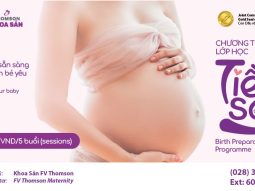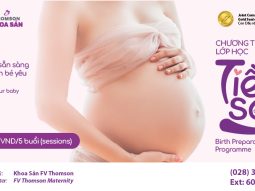For more than 20 years, Ms N.T.V. (50 years old, Ho Chi Minh City) has frequently experienced states of nervousness, rapid heartbeats, shortness of breath, and insomnia. However, clinical examinations showed that her body was healthy.
Ms V. was admitted for a 20-year history of heart rhythm disorder, but the underlying cause was depression.
Ms V. shared that every time she experienced a rapid heartbeat, she felt like she was “approaching death,” and was admitted to the hospital for treatment. However, when she underwent clinical examinations and tests, results showed her body was in normal health.
Ms V’s rapid heart rate was treated with medication. There were times when she could sleep well, and everything seemed fine, but during periods of insomnia, she would become anxious and her heart would start pounding in her chest.
A cardiologist suspected that her rapid heart rate might be due to severe anxiety and stress, which could trigger heart rhythm issues. He suggested seeking a psychiatric evaluation. However, Ms V. resisted, believing that she had no psychological issues and wasn’t feeling depressed.
More recently, after the frequency of her heart issues increased and she required more hospital visits, Ms V. finally agreed to see a psychiatrist.
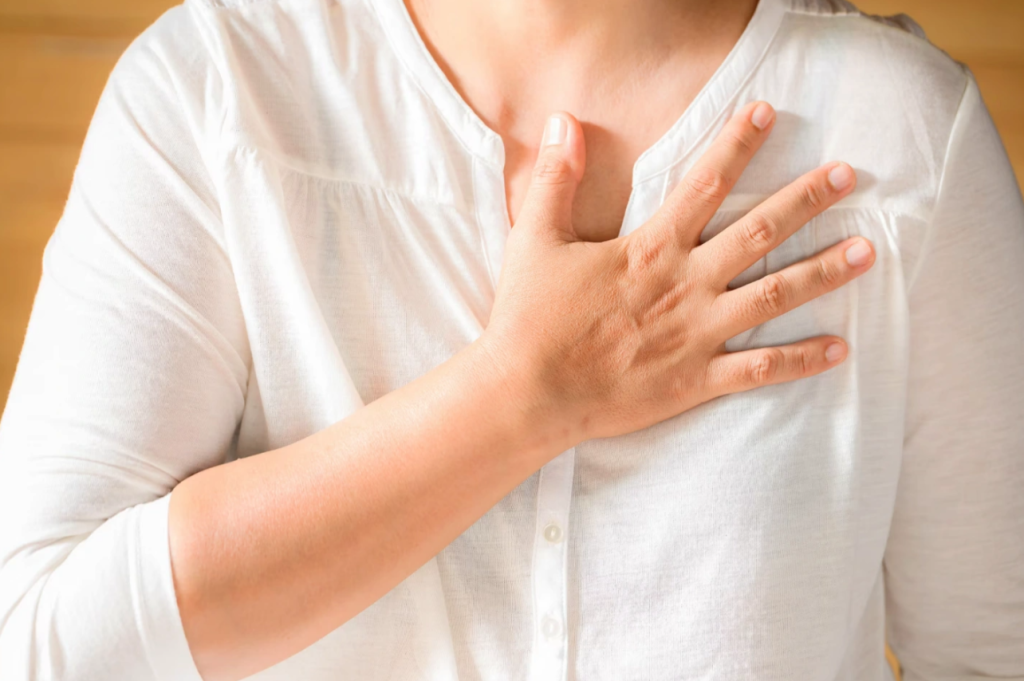
“Even though patients tend to deny the symptoms of stress, it triggers their autonomic nervous system, keeping the patient always anxious, panicked, and experiencing a fast heartbeat. This is the root cause that needs to be treated. Treating the symptoms that manifest outwardly, such as anxiety and a fast heartbeat, isn’t enough,” explains Dr Le Hoang Ngoc Tram from the Psychiatry – Internal Medicine Department, FV Hospital.
After Ms V. received the initial two doses of oral medication, her condition improved. She was further prescribed a medication plan with an initial intensive dose for the first year and then a maintenance dose to limit relapses, along with regular check-ups every six months. Ms V. admitted that she used to frequently think about death. As of now, her health has stabilised, and she no longer experiences chest pain or anxiety.
One in every seven people suffers from mental disorders, depression, or anxiety.
According to statistics released by the Ministry of Health in August 2023, nearly 15 million people in Vietnam suffer from common mental disorders each year, with depression and anxiety ranking at the top, affecting 5.4 per cent of the population. In other words, one out of every seven Vietnamese people has a mental disorder, and most are not receiving treatment. The incidence of depression is on the rise, and women are more likely to suffer from depression than men. However, many patients tend to deny their depression, only treating the symptoms, as in the case of Ms V. Depression is a common, complex condition with various symptoms, and once diagnosed, the root of the problem needs to be treated.

Clinical Psychologist Bui Thi Quynh Anh, from the Clinical Psychology Department at FV Hospital, stated that after the Covid-19 pandemic, people have become more concerned about their mental health. The rate of patients seeking treatment for depression has significantly increased, especially in large cities. The impact of society’s fast-paced lifestyle combined with environmental uncertainties has led to many people facing psychological challenges.
Common symptoms of depression include persistent sadness, loss of interest, insomnia, negative thoughts, and suicidal tendencies. However, not all patients exhibit these symptoms outwardly. In many cases of suicide, those close to the individuals often fail to recognise any signs of distress beforehand.
Modern treatments for depression
At FV, the treatment of depression involves a multidisciplinary approach between the Psychiatry-Internal Medicine Department and the Clinical Psychology Department. According to Dr Le Hoang Ngoc Tram, when a patient comes to the hospital for a depression evaluation, they will first be in contact with a psychiatrist.
Doctors will have a conversation with the patient and assess their condition based on depression assessment criteria. Patients may also undergo some tests to rule out the possibility of other conditions with similar symptoms to depression, such as bipolar disorder, dysthymia, or even anaemia, an iron deficiency in the blood which can lead to emotional and psychological problems predisposed to depression diagnosis.
After these initial steps, the doctor can make an assessment of the patient’s level of depression and recommend an appropriate treatment method. Patients with mild depression will be referred to a psychologist for psychotherapy. For those with moderate to severe depression, they may be prescribed medication or use repetitive Transcranial Magnetic Stimulation. However, if the patient has multiple psychological issues that need to be addressed, the doctor will also collaborate with a psychologist before initiating treatment.
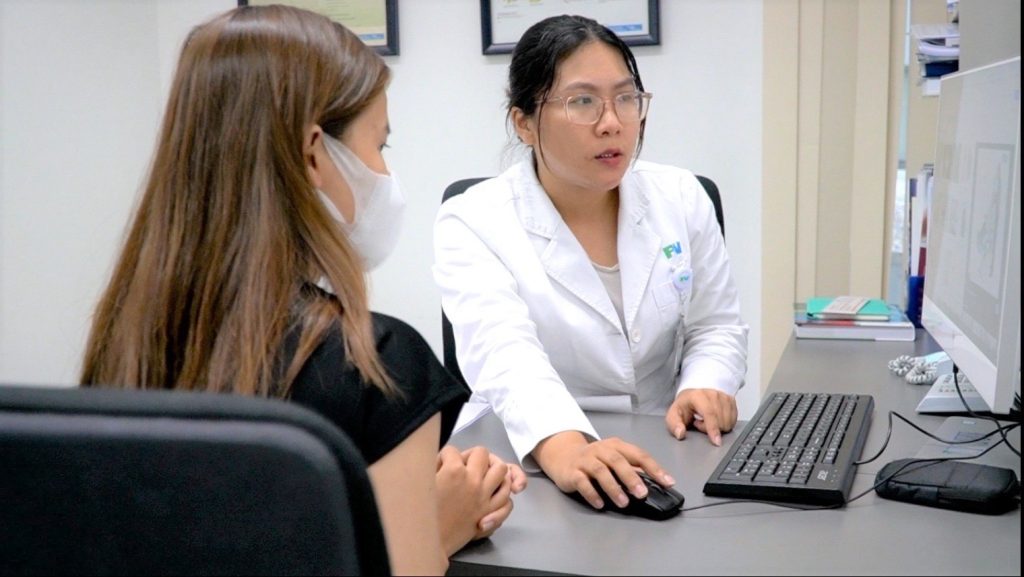
“Many patients refuse psychiatric treatment because the term ‘psychiatric’ sounds quite scary. However, after listening to detailed analyses by doctors and psychologists about their level of illness and treatment options, patients usually become willing to participate in receiving care,” explains Dr Tram.
FV is a pioneering institution in the field of treating severe depression using rTMS (repetitive Transcranial Magnetic Stimulation). The advantage of this method is that it provides comfort for patients during treatment. This non-invasive procedure does not require medication and does not induce seizures, making it a favourable choice for treating severe depression.
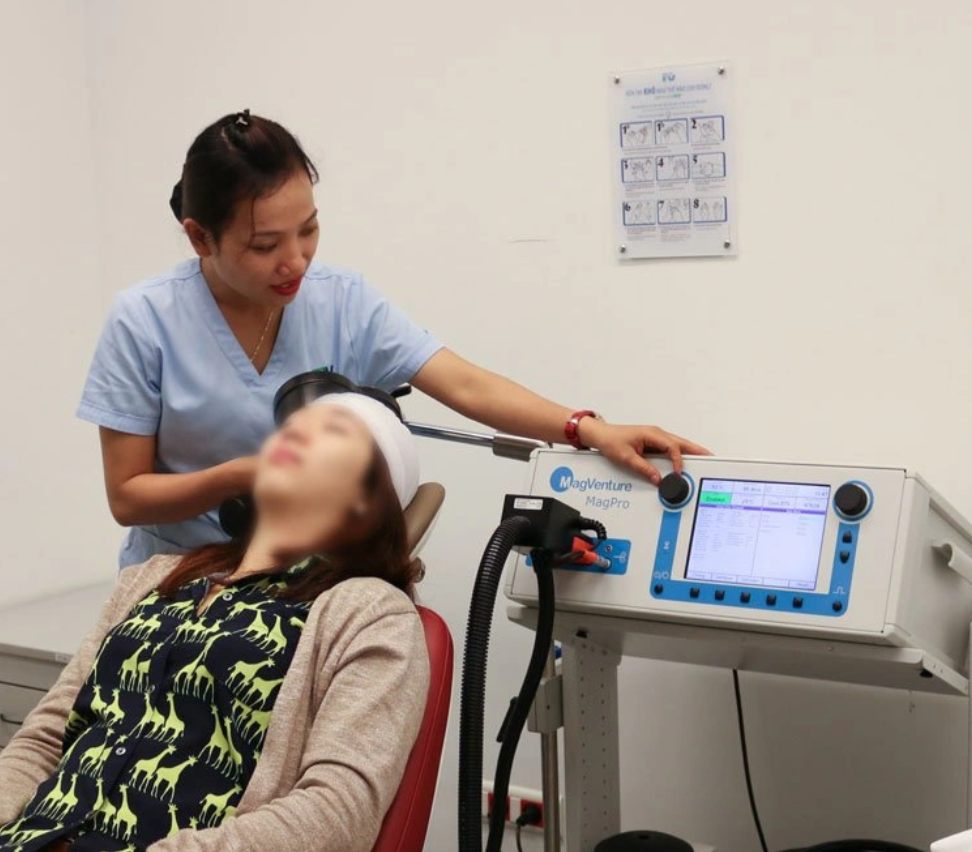
The doctor places electrodes on the patient’s head and transmits short-wave magnetic pulses through the skull to stimulate cells and change the nerve electrical function of the brain from the outside. Short, high-intensity pulses are repeated to activate less-active areas of the brain to become more flexible as nerve conduction is regenerated. The purpose of this therapy is to transform an imbalanced brain into a normal state. During the treatment process, patients remain conscious and can return to normal activities afterward.
According to statistics, nearly 70 to 80 per cent of patients treated for depression at FV Hospital recover well after the first cycle of rTMS therapy. One example is Ms L. (55 years old, resident of Lam Dong), who had to be admitted to the psychiatric hospital due to suicidal behaviour. She frequently thought about suicide and always felt down. Because she wanted to escape from her own darkness, she took much more than the correct dose of medication her doctor had prescribed, but her condition didn’t improve.
When she learned about the rTMS method at FV Hospital, her family took her to the hospital for an examination, seeing it as her last hope.
“Every week Ms L. would travel from Lam Dong to Ho Chi Minh City for rTMS treatment. After receiving encouragement, she persisted in receiving 15 sessions of treatment and subsequently felt much happier,” Dr Tram recounted.
After receiving 30 3-minute rTMS sessions over the course of six weeks, Ms L.’s condition improved. She was advised to continue rTMS treatment every month to maintain its effectiveness and undergo regular evaluations every year.
To receive advice on receiving expert, sensitive care for depression at FV Hospital, please contact: (028) 54 11 33 33.

 Vi
Vi 
